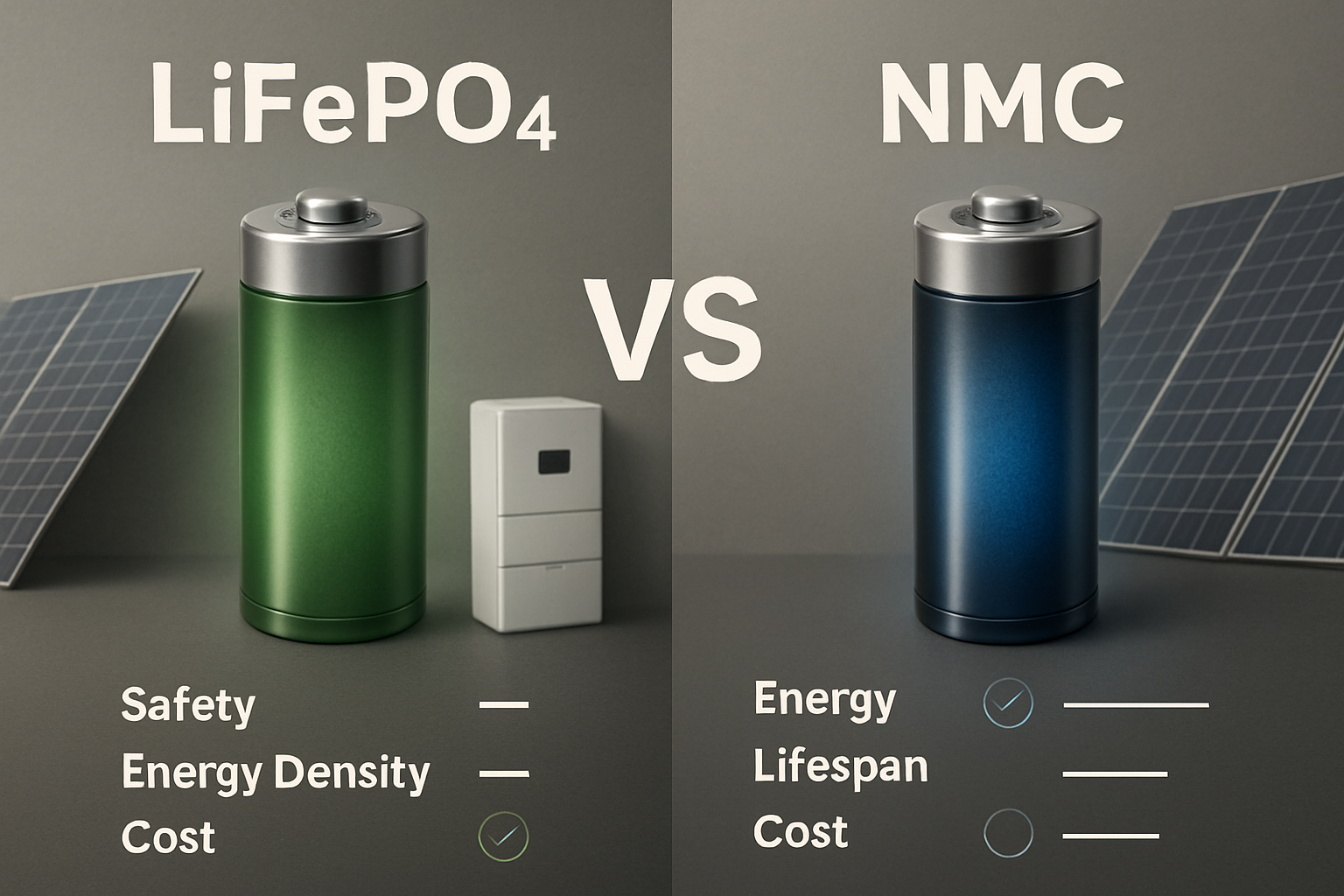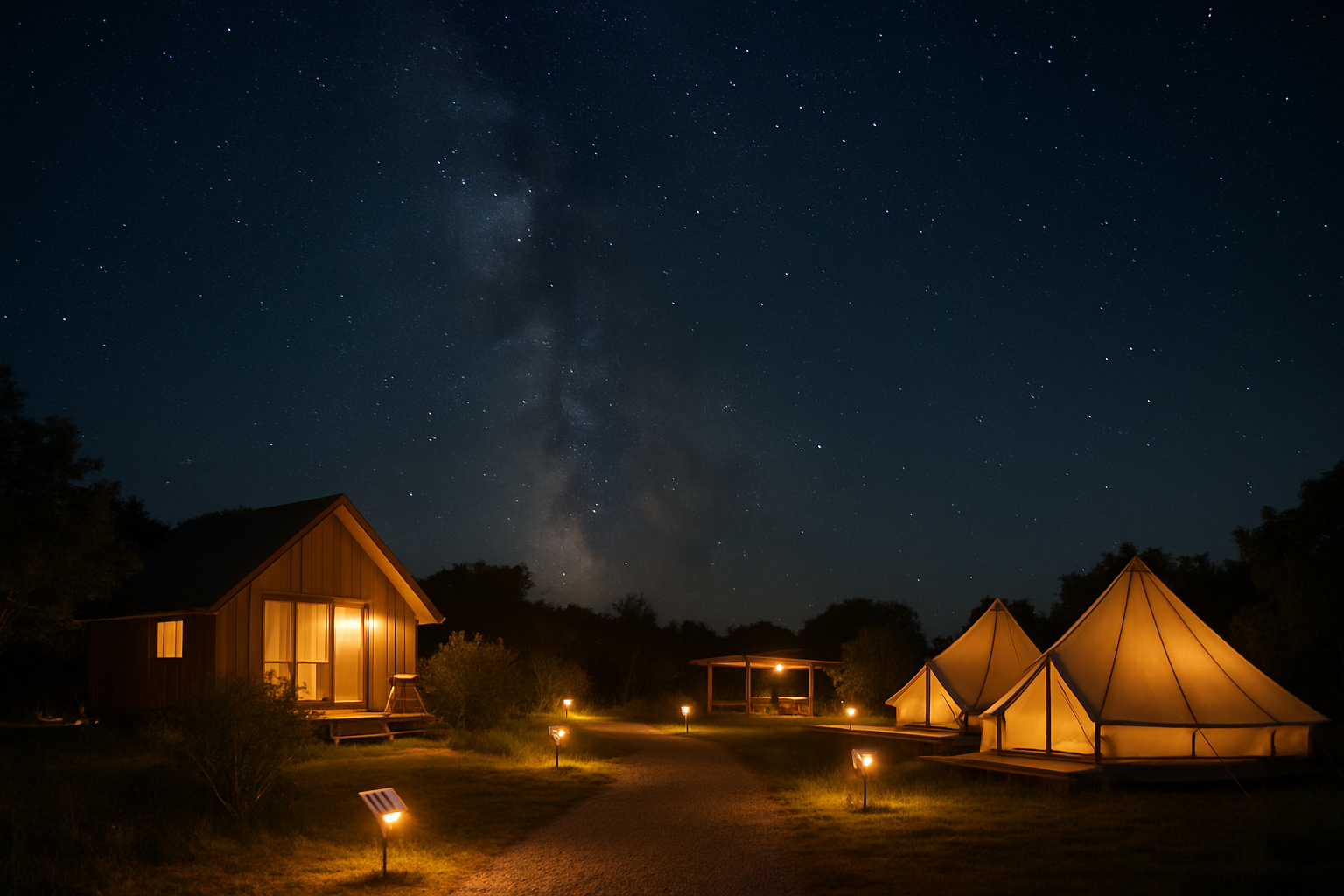Imagine a serene escape nestled deep in nature, far from the hum of civilization, yet offering every comfort and modern convenience. This vision is the essence of grid-independent luxury, a growing demand within glamping sites and eco-resorts. Achieving this level of autonomy requires a thoughtful approach to energy, moving beyond traditional power grids to embrace robust, sustainable solutions.
The Appeal of Energy Independence in Remote Settings
Glamping sites and eco-resorts often thrive in remote, pristine environments, providing unique experiences that connect guests with nature. However, these locations frequently face unreliable or non-existent grid connections. Relying on noisy, polluting diesel generators disrupts the tranquil atmosphere and contradicts the ethos of eco-conscious travel. Establishing energy independence allows these establishments to offer uninterrupted luxury while upholding their commitment to environmental stewardship. Many pioneering destinations prioritize sustainability without compromising on comfort or luxury, often powered by renewable energy sources. Sustainable hospitality is crucial for the future of travel, minimizing environmental impact while maximizing positive influence on consumers and communities.
Meeting Guest Expectations and Environmental Goals
Guests seeking luxury glamping or eco-resort experiences expect seamless comfort, from air conditioning and hot showers to reliable internet access. Providing these amenities off-grid demonstrates a genuine commitment to sustainability, which increasingly appeals to travelers. Eco-friendly accommodations are often built with locally sourced, sustainable materials and focus on minimizing their environmental footprint through innovative design. For instance, some utilize passive heating and cooling techniques to reduce energy consumption. This aligns with the broader movement towards sustainable development practices in the hospitality industry, which aims to ensure resource use is measured and managed to meet ecological, social, and economic needs.
Building Blocks of a Reliable Off-Grid System
Creating a truly grid-independent luxury experience hinges on a well-designed power system. This system typically integrates solar power generation with advanced energy storage and intelligent power conversion technologies.
Solar Power Generation: Harnessing the Sun's Energy
Solar photovoltaic (PV) panels are a primary component for generating clean electricity in off-grid settings. They capture sunlight and convert it into direct current (DC) electricity. Monocrystalline panels are often preferred for glamping facilities due to their high performance and maximum energy conversion per unit, even in low-light conditions. The efficiency of solar panels depends on factors such as sun direction, panel type, maintenance, and temperature. Installing solar power systems offers numerous benefits for glamping sites, including providing a consistent and sustainable power source while reducing reliance on traditional electricity grids.

Energy Storage: The Heart of Independence
Batteries are crucial for storing the electricity generated by solar panels, ensuring power availability during nights, cloudy days, or peak demand periods. Lithium iron phosphate (LiFePO4) batteries stand out as an excellent choice for off-grid solar systems. They offer a significantly longer cycle life, often exceeding 2,000 to 5,000 cycles, meaning they can last for many years. These batteries can safely discharge down to 80% or even 90% of their capacity, providing greater usable energy compared to other battery types. LiFePO4 batteries also boast high charge and discharge efficiencies, typically around 95-98%, ensuring minimal energy loss. Furthermore, they are considered among the safest lithium battery chemistries due to their exceptional thermal and chemical stability, reducing the risk of overheating or combustion. Their lightweight and compact design also simplifies installation and requires less space. This technology provides a stable and dependable power source for years to come.
Power Conversion and Management: The Intelligent Hub
A solar inverter is essential for converting the DC power from solar panels and batteries into alternating current (AC) electricity, which powers most appliances and equipment. For off-grid luxury accommodations, a hybrid inverter is often the preferred choice. Hybrid inverters combine the functions of a solar charger and a solar inverter in one unit. They can manage the flow of electricity between solar panels, battery packs, and even a backup generator, ensuring a stable and reliable supply. This intelligent management optimizes energy use, reduces dependence on the grid, and can even facilitate local electricity trading in mini-grids if applicable. These systems enable you to monitor and control energy flow in real time, ensuring that critical loads continue operating without disruption.
Designing for Seamless Operation and Scalability
Achieving true grid independence for a luxury establishment involves more than just assembling components. It requires careful planning and smart management.
Accurate Load Assessment and System Sizing
Understanding the energy demands of a luxury glamping site or eco-resort is the first critical step. This involves a detailed analysis of all electrical loads, including lighting, refrigeration, climate control, and various guest amenities. Professional assessment helps determine both average daily consumption and peak demand periods. With this data, you can accurately size the solar array and battery storage capacity to ensure the system consistently meets energy needs, even during periods of low solar generation or high occupancy. This careful planning avoids reliance on expensive and environmentally impactful backup generators.
Advanced Energy Management Systems
Modern energy management systems (EMS) are vital for optimizing off-grid operations. These systems provide detailed insights into energy usage, helping to identify areas for efficiency improvements. Features like automation and remote access allow for intelligent control of building systems such as HVAC and lighting. For example, smart thermostats can adjust temperatures in unoccupied rooms, and sensors can automatically switch off unnecessary lights. This real-time monitoring and control ensures optimal energy savings without compromising guest comfort. Such systems are a must-have for modern hospitality businesses, contributing to both cost reduction and environmental protection.
Achieving Sustainable Hospitality and Economic Benefits
Investing in grid-independent power solutions offers multifaceted advantages, enhancing both the guest experience and the operational efficiency of luxury accommodations.
Enhanced Guest Experience and Environmental Stewardship
Providing a reliable, quiet, and clean power supply significantly elevates the guest experience. Imagine a peaceful night's sleep undisturbed by a generator, or the satisfaction of knowing your stay is powered by the sun. This appeals to the growing number of travelers seeking eco-friendly accommodations. By leveraging renewable energy, glamping sites and eco-resorts drastically reduce their carbon footprint, aligning with global sustainability goals. For example, a solar-equipped property can reduce CO2 output by tons annually. This commitment to sustainability can also enhance brand reputation and attract eco-conscious guests who may be willing to pay a premium for such experiences.
Operational Advantages and Long-Term Value
While the initial investment in a robust off-grid system may be higher, it yields significant long-term operational savings. Reduced reliance on fuel deliveries for generators translates into lower ongoing costs. Furthermore, energy independence protects your business from grid outages and fluctuating electricity prices. Over time, the durability and low maintenance needs of components like lithium iron phosphate batteries contribute to a favorable return on investment. The ability to operate independently provides resilience and stability, making your luxury accommodation more valuable and secure in the long run.
| Benefit Category | Description | Key Advantages |
|---|---|---|
| Environmental Impact | Reduced reliance on fossil fuels and grid electricity. | Lower carbon footprint, cleaner operations. |
| Guest Experience | Uninterrupted power, quiet environment, eco-conscious appeal. | Enhanced comfort, unique selling proposition, attracts discerning travelers. |
| Operational Efficiency | Lower long-term energy costs, reduced maintenance. | Protection from outages, energy bill savings, increased resilience. |
| Location Flexibility | Ability to operate in remote, picturesque locations. | Access to unique, secluded sites, expands business opportunities. |
Realizing Your Vision of Independent Luxury
Achieving grid-independent luxury for glamping sites and eco-resorts is a tangible goal. It involves careful planning, selecting the right high-performance components like lithium iron phosphate batteries and hybrid inverters, and implementing intelligent energy management systems. With years of experience in the solar and energy storage industry, providing reliable and scalable energy solutions is a core mission. You can gain true energy independence, offer unparalleled guest experiences, and contribute positively to environmental preservation. This approach transforms remote locations into beacons of sustainable luxury, allowing guests to truly disconnect and recharge in harmony with nature.





Leave a comment
All comments are moderated before being published.
This site is protected by hCaptcha and the hCaptcha Privacy Policy and Terms of Service apply.